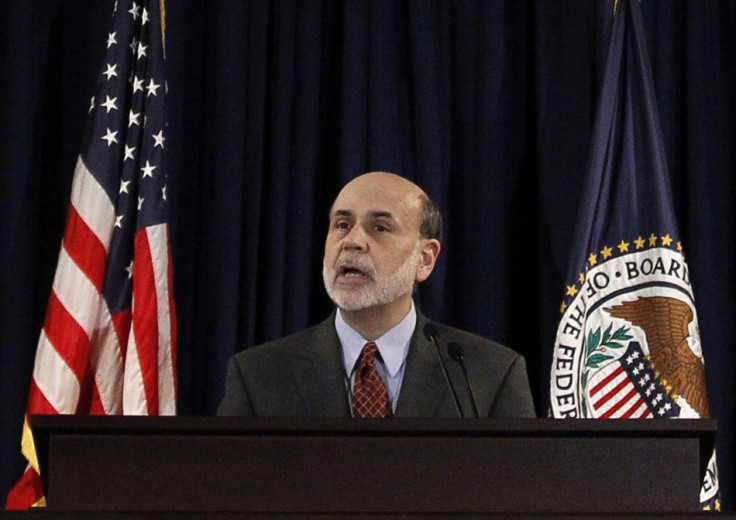Federal Reserve notes economic slowdown, but says it’s “temporary”

The Federal Reserve noted that the US economy is slowing down in mid 2011. The labor market is doing worse than anticipated, the housing market continues to struggle, and consuming spending remains constrained.
As a result, the Fed lowered the 2011 US GDP growth projection by 0.4 percentage point and raised the unemployment rate projection by 0.2 percentage point.
Still, the Federal Reserve remained upbeat for the long-term. It said the economic recovery is continuing at a moderate pace. Moreover, the slowdown is due to temporary factors like supply chain disruptions from Japan's natural disasters and the higher prices of food and energy.
As these factors dissipate, the Federal Reserve expects economic growth to jump at to as high as 3.7 percent for 2012 and 4.2 percent for 2013.
On monetary policy, the Federal Reserve left rates unchanged, put in the extended period language, signaled its intention to end QE2 as scheduled, maintained its policy of reinvesting maturing securities, and gave no hint of QE3.
These policy decisions are widely expected. However, given the Federal Reserve's belief that the economy is fundamentally sound in the long-term, investors have interpreted the Fed's leaning as more hawkish than previously expected.
As such, the Fed may stop reinvesting maturing securities and raise rates sooner than previously expected.
Not everyone in the private sector agrees with Bernanke's public assessment that the current economic slump is due to temporary factors.
Peter Yastrow, the world's largest LIBOR trader, famously told CNBC on June 1 that the US economy is on the verge of a great, great depression. He also claimed that the Federal Reserve knows it.
© Copyright IBTimes 2024. All rights reserved.





















